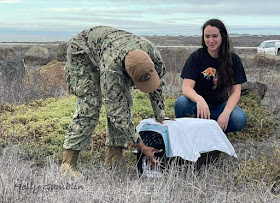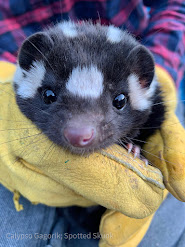This is a GPS radio collar being prepped to be worn by an island fox this summer. Katie Elder was FIF's 2021 Research Grant recipient and she will be investigating territory size on Santa Rosa Island. More on her work
Friends of the Island Fox is taking
applications for our 2022 FIF Research Grant now through August 29,
2022.
What will you uncover about island foxes?
Research in island fox ecology is an investment in the future and island fox survival. Not only is this work important for island foxes and the Channel Islands, but also for other endangered species with small population sizes in confined geographic habitats. An island doesn't have to be surrounded by water, it can be a confined habitat surrounded by desert, a city, or some other physical barrier.
Population viability calculations used for island foxes have been applied to the Sierra Nevada red fox.
See more on Current FIF Funded Research Projects
Recently published island fox discovery
Discussion on island foxes and island spotted skunks
Update on island fox microbiome research









